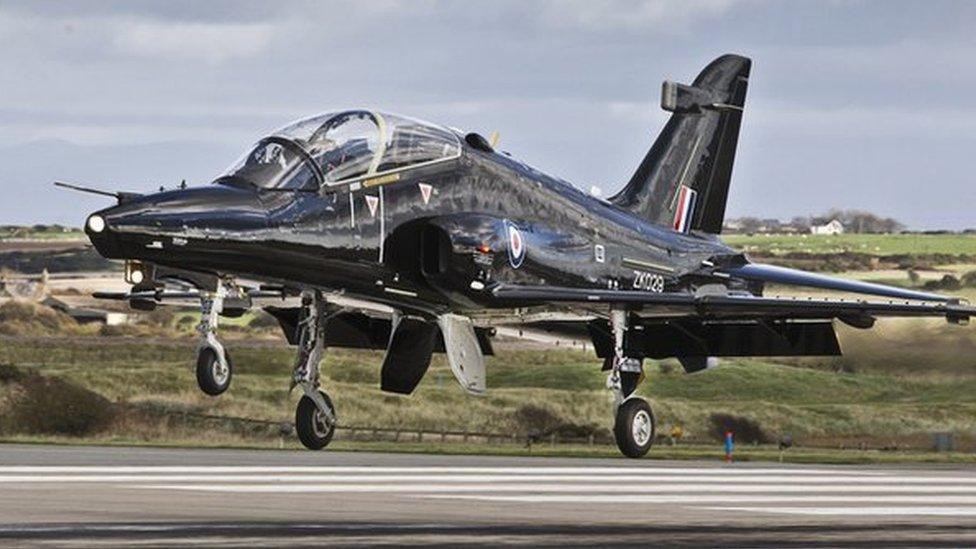Hundreds of trainee military pilots waiting to start flying
- Published
- comments
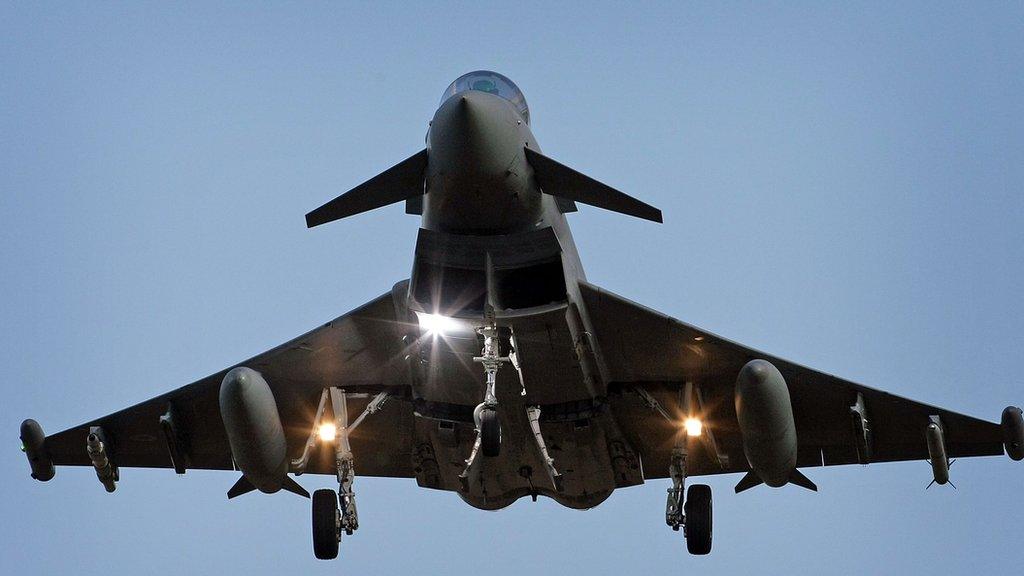
Hundreds of trainee military pilots are not flying because of long delays in the Ministry of Defence's privately contracted training programme.
The backlog in the Military Flying Training System (MFTS) has doubled over the past year.
Three hundred and fifty pilots, including helicopter and fast-jet pilots, are waiting to fly because of a shortage of planes and instructors.
The MoD says there are enough trained air crew for current front-line needs.
The BBC has been told training which should take three years is taking six or seven, with trainee pilots spending their time doing office jobs rather than flying.
The multi-billion-pound training contract is run by Ascent, a partnership between Babcock International and Lockheed Martin.
"It's a huge contract and it's fundamentally failing," said one source.
"There are so many elements that aren't working. It's not doing justice to the young trainee pilots. They do initial officer training and then everything stops for at least a couple of years."
More than doubled
The BBC's File on 4 programme has been given exclusive figures, via a Freedom of Information request, that show in one year the number of trainees waiting to start their first course, elementary flying training, has more than doubled - from 85 in February 2018 to 190 in January this year. In the summer of 2016, there were just 11 people on hold.
When officers waiting for more advanced courses are included - such as fast-jet or helicopter pilots - the number 'on hold' is now 350, more than twice as many as this time last year.
The figures also show the estimated time for an RAF fast-jet pilot to complete the MFTS programme is now seven and a half years.
'Unable to fly over water'
Some of the problems date back to the Strategic Defence Review of 2015 which brought in new plans for enhanced military capacity, and an associated demand for more aircrew. But sources say there's a lack of planes for these pilots to be trained on, and instructors to train them - with some new aircraft requiring costly modifications before they can fly.
The sources, who wish to remain anonymous, claim that US trainer jets bought for training at RAF Valley on the island of Anglesey cannot be flown over water, while Hawk T1 jets from the 1970s are being drafted in to fill gaps in training.
Defence journalist Tim Ripley said the MoD had not invested in enough planes and instructors, despite a boost to spending in the most recent defence review.
"The 2015 defence review did not make a corresponding increase in the budget available to the MFTS to buy or lease extra planes, extra simulators and employ extra instructors. Therefore there's not enough room on the courses for the pilots," he said.
'Unacceptable and ridiculous'
Some former officers like Matt Kitson have left the armed forces altogether rather than wait years to complete their training and gain their wings.
"The most frustrating part was to be sent to a squadron with no set date of when you're starting," he said.
"It was just 'oh, it will be in six months', then that six months became maybe nine months and then that became a year. So with no set date you've got a lot of highly motivated guys. It's frustrating."
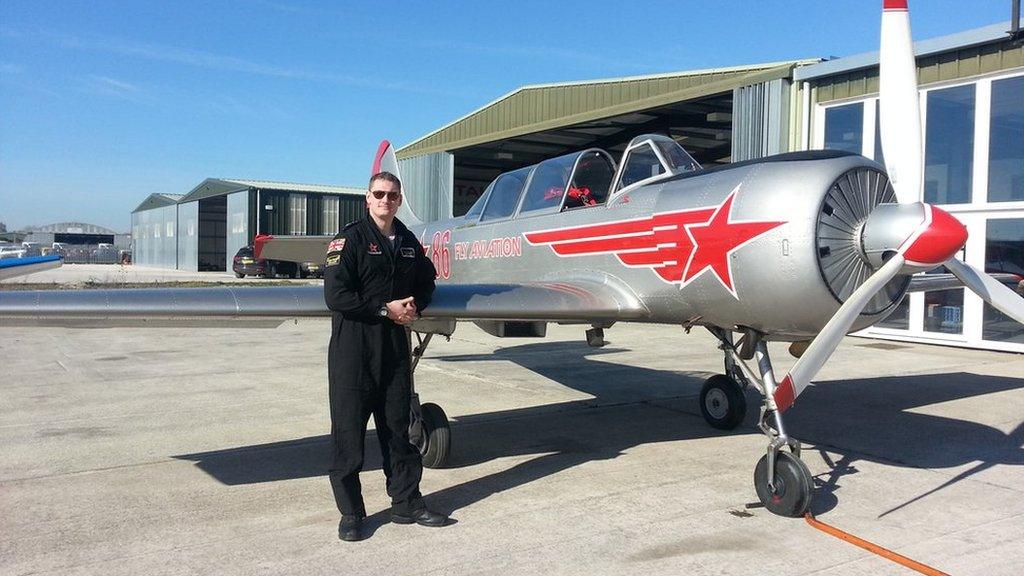
Matt Kitson and a Yak 52 aerobatic plane
After spending two years in jobs such as being a careers adviser, he gave up his own military career to become a commercial airline pilot.
Conservative MP Dr Julian Lewis, chair of the Commons Defence Committee, said he would write to the Defence Secretary Gavin Williamson for an explanation in light of the BBC's findings.
"The idea that somebody might be waiting until their late 20s until they graduate as a fully-fledged RAF fast-jet pilot is clearly ridiculous, unacceptable and will have to be resolved speedily," he said.
'Phantom' courses
File on 4 has also discovered the MoD is paying Ascent for "phantom" courses, which never actually take place, because the contract says courses must be completed on time. At the same time, millions of pounds are being spent sending pilots to private flying schools to do their helicopter and multi-engine aircraft training.
A spokesperson for the MoD says there are reasons when it's decided not to run a course. If these are attributable to Ascent then they are not paid, the spokesperson said. However, "should the reasons be related to the MoD, then it is designated as 'zero loaded' and Ascent are paid as if the course had run as normal".
The MoD admitted the number of holding officers is greater than they would expect, but said it was normal for people to be put 'on hold' before flying training, and insisted all aircrew fulfilled essential roles to expand their skills in other areas of the job.
"The Military Flying Training System is the biggest transformation of UK military aircrew training in a generation that, when fully complete, will deliver a world-class training system across pilot and aircrew pipelines," a spokesman said.
"The transition to the MFTS is well under way, with student aircrew beginning training and throughput increasing as the new aircraft, simulators and other state of the art training aids bed in."
File on 4's 'Winging it?' is on BBC Radio 4 on Tuesday 5 March at 20:00 GMT and available afterwards on BBC Sounds.
- Published19 February 2019
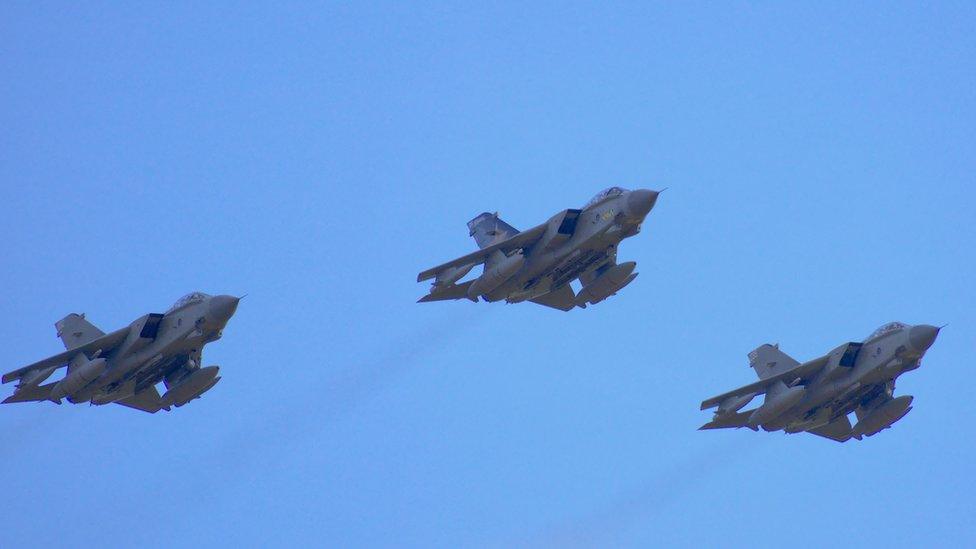
- Published8 July 2015
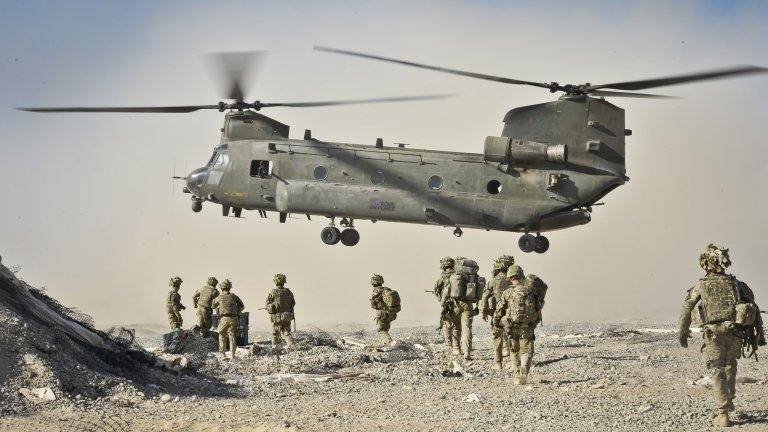
- Published11 February 2019
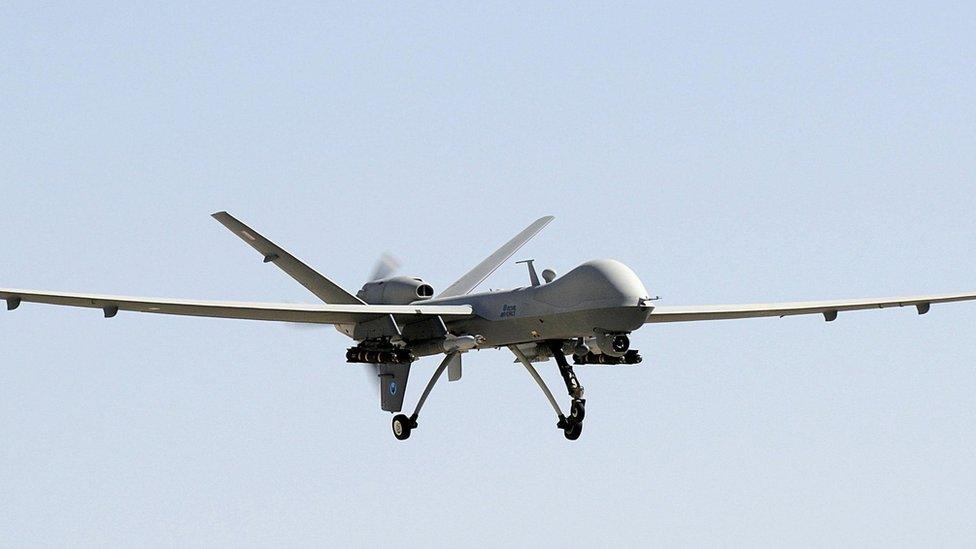
- Published2 February 2016
